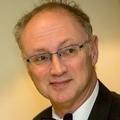
FORMER public health consultant, and MP for Oldham East and Saddleworth, Debbie Abrahams, has warned Parliamentarians that the UK’s recovery from the Covid pandemic is co-dependent on "how well the rest of the world is doing".
Questioning Matt Hancock, the health secretary, as he gave a Covid-19 update in the Commons, Ms Abrahams, said: “As the UK rolls back lockdown restrictions the global death toll has reached three million and the World Health Organisation is warning that the world is approaching the highest rate of infection so far.
“With three new variants on three continents, all of these variants now in the UK, and reduced efficacy of the different Covid vaccinations against these variants, it is clear that the UK’s success in fully emerging from this pandemic is co-dependent on how well the rest of the world is doing.
“I asked the health secretary about the global co-ordination of surveillance of new variants back in February, and the WHO is now consulting on this. So can the health secretary update the House on our response to this consultation?”
The health secretary replied, saying: “Yes, this is incredibly important subject and I agree with the substance of what the Hon lady asked in the question. She’s quite right to raise this.
“We’ve out in place the new variant assessment plan allowing any country around the world to use our enormous genomic sequencing capability if they want to sequence positive cases in order to discover what is happening in their countries.
“Also our borders testing system, where all positives are sequenced, means that we in fact get a survey from around the world through those who have travelled to the UK and we can relay that data back to individual countries so that they understand that better.
“Of course, it would be far better if something like the new variant assessment platform is run on a multi-lateral basis globally, for instance by an organisation like the WHO. We are engaged with the WHO on making sure that is available but my view was we needed to get on and offer it to everybody and then build a network of labs around the world which can make that offer so that sequencing can be available in every country because it is currently far too patchy.”



Comments: Our rules
We want our comments to be a lively and valuable part of our community - a place where readers can debate and engage with the most important local issues. The ability to comment on our stories is a privilege, not a right, however, and that privilege may be withdrawn if it is abused or misused.
Please report any comments that break our rules.
Read the rules here